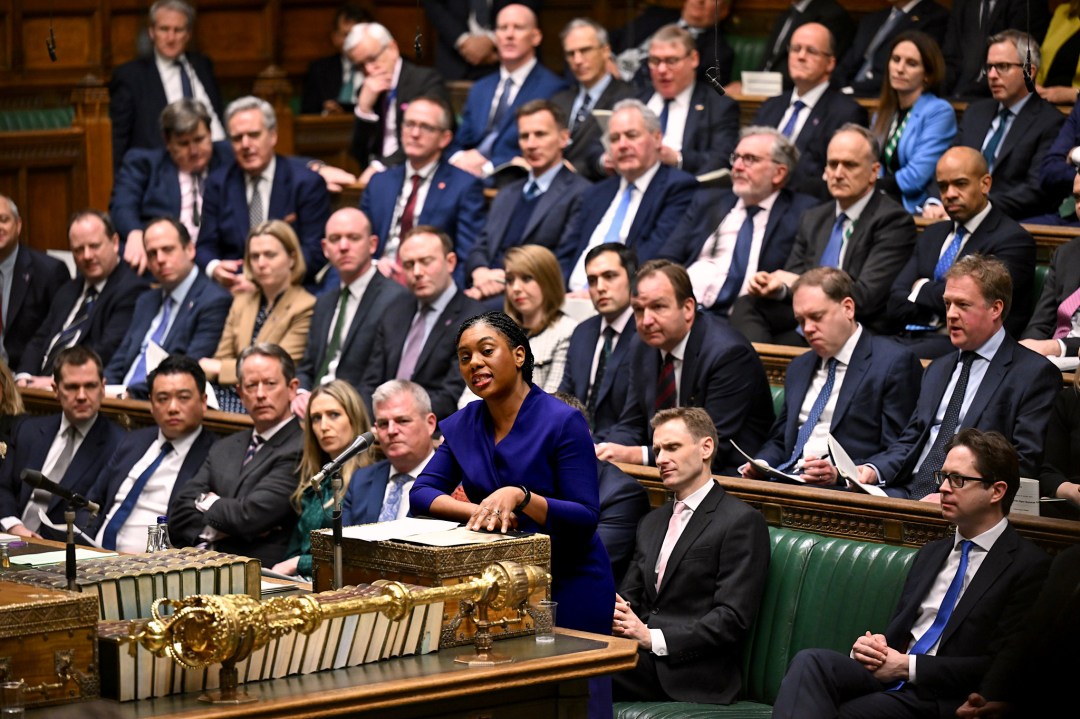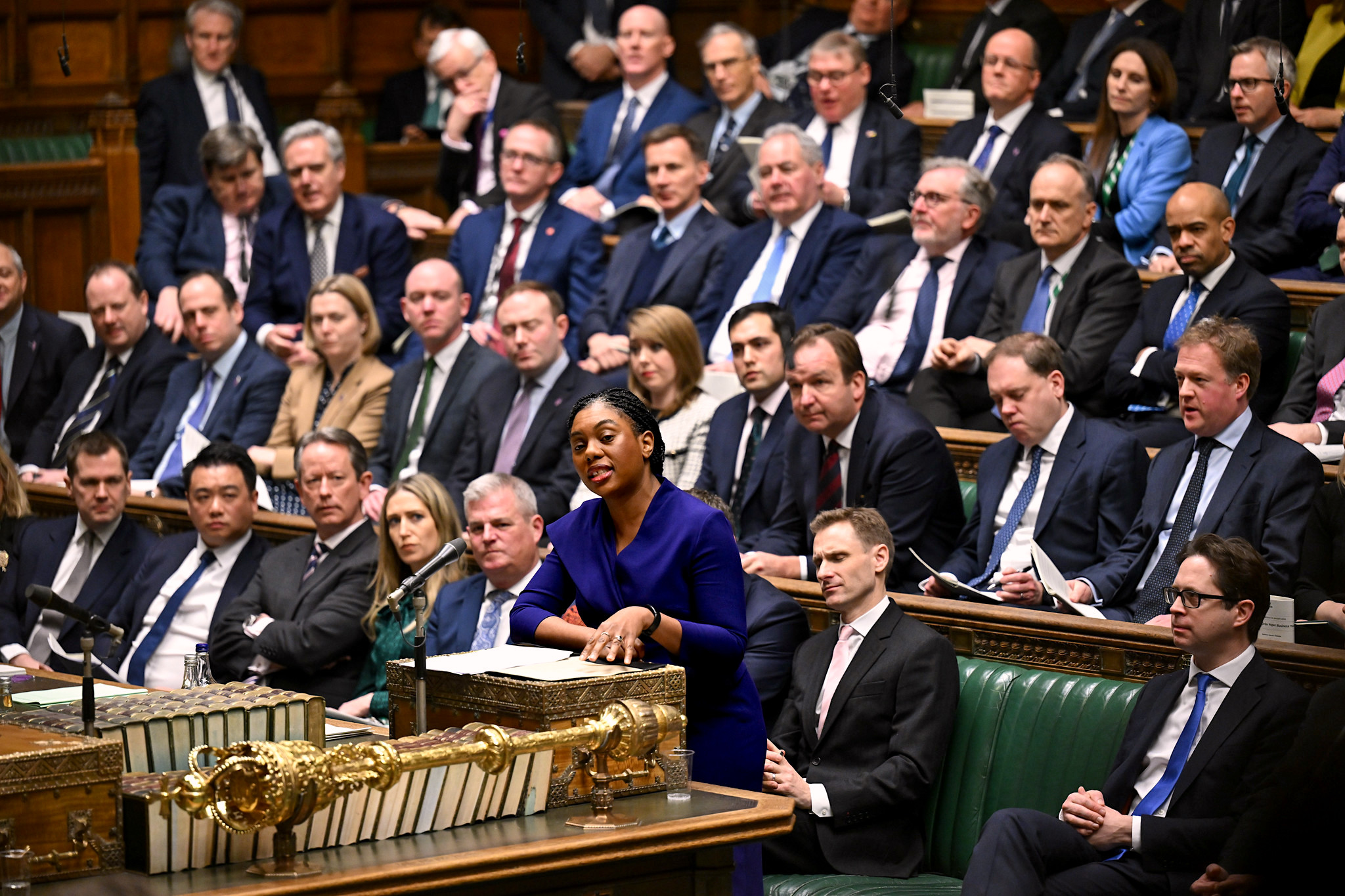For a party long described as Britain’s ‘natural party of government’, the Conservatives have spent an astonishing amount of time recently behaving as if the electorate suffers from acute memory loss. Every crisis they now attempt to offer solutions to in opposition is one they helped engineer in government. Every principle they defend today is one they discarded yesterday. And every lecture on restraint or prudence is delivered with the tone of a headteacher whose school burned down on his watch.
Take Send as an example. (‘Send’ stands for special educational needs and disabilities.) After years of cuts, expansions and unfunded, changing statutory obligations to the system by which pupils with learning difficulties and disabilities are given financial and educational support, Send is now buckling. Councils are careening toward bankruptcy; tribunals are overwhelmed; diagnoses are rising faster than provision. By 2029, Send-related debts in UK councils are expected to reach £17.8 billion. Reform and Labour have dragged the crisis, kicking and screaming, into the spotlight, and the Conservatives now describe the Send system as a ‘lose, lose, lose’. But who is going to listen to the Tories, given they spent a decade treating Send pressures as an administrative nuisance rather than a structural failure?
But this debacle is merely one in a much larger Conservative pathology: the Tories are trapped in a political version of Groundhog Day. The party warn about debt, after ballooning it. They lament immigration, after dramatically liberalising routes. They call for growth, after presiding over stagnation. And now, a year out of office, they rehearse their concerns about public services collapsing under the weight of demand, as though this were some unforeseeable natural disaster rather than the cumulative result of their own decision-making.
The deeper irony is that the Conservatives seem genuinely confused as to why the public is no longer listening. They repeat their lines – ‘we have a growth problem’; ‘the country deserves better’; ‘we need to get Britain working’ – with earnestness, but when a Tory MP warns of bankrupt councils, overwhelmed schools or a welfare system losing control, the country thinks only one thing: yes, because you let it happen.
Meanwhile, Reform has neatly side-stepped the credibility trap. Whatever one thinks of their solutions, they have correctly diagnosed the dysfunction. Labour, for its part, at least has the advantage of being able to act, and to blame the Conservatives for everything the system can no longer deliver.
The Tories are stuck shouting from the sidelines, unheard. Once the ‘hypocrite’ label attaches itself, every statement arrives pre-discounted. This is why Starmer needs only four words at PMQs, ‘you had 14 years’, to detonate any Tory argument. Recovery for the party requires something they have not produced in years: genuine humility, intellectual honesty and a willingness to admit that the system didn’t ‘break’, they broke it.
Still, Labour should not read the polls as proof of its own moral goodness. The Budget on Wednesday arrives wrapped in the kind of contradictions the Conservatives once specialised in. Reeves will promise discipline while unveiling a trio of expensive commitments: scrapping the two-child limit (a pledge worth costing around £3.5 billion), freezing rail fares, and a rise to the state pension of £550. This is a smorgasbord of giveaways tied together with the thinnest thread of arithmetic.
Can the Conservatives recover? Possibly
The Conservatives didn’t collapse because they became ideologues. They collapsed because they became unbelievable – just as Labour is becoming today. Every U-turn, ‘emergency’ budget, and moment of panicked improvisation hollowed them out. Voters concluded that no Tory promise survived contact with reality. Labour now edges towards the same trap: moral ambition without fiscal honesty. Reeves cannot preach responsibility while governing by press release.
So, can the Conservatives recover? Possibly. British politics is cyclical, and memories fade fast. But they need to win back voters’ attention. Last week, Reform and the Tories held competing press conferences. Both rooms were full of journalists, but the online numbers told the real story: Reform drew 103,511 views across X, Facebook, YouTube and TikTok; the Conservatives drew 19,193. A party cannot influence a country that has stopped listening.
The real danger for the Tories is not public anger, but indifference. At some point, even the so-called ‘natural party of government’ must confront a natural consequence: contradict yourself often enough and the public stops listening, not out of fury, but out of boredom.








Comments